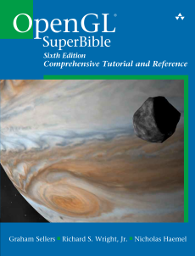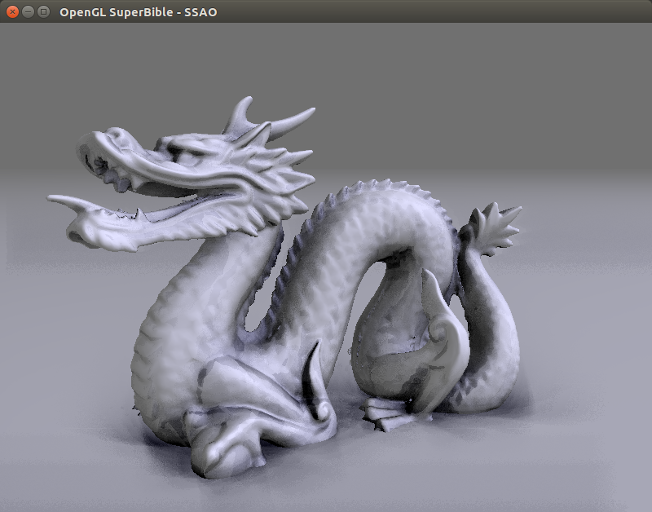name: inverse layout: true class: center, middle, inverse --- # From C++ to Rust Beyond the Borrow Checker --- layout: false # Some background * 10 years of C++ in games industry * PS2, PS3, Xbox360, Wii, PC * Many CPU/GPU and memory constrained systems * C/C++ used in games for * CPU Performance * Manual memory management * Close to hardware * Legacy * C++ is fun but has many pitfalls .footnote[.red[*] Press 'P' for slide notes] ??? * How many C or C++ programmers in the audience? * Won't cover Hello World level stuff * Won't talk about borrow checker, it's been covered a lot already * Feel free to ask questions as we go. --- class: center, middle  ??? * Been dabbling in Rust for about a year * Documentation has got a lot better over this time! * Interested in Rust because it's could be a viable C++ replacement * Wrote some sorting algorithms, wanted to write a more complete program * Want to learn more Rust --- class: center, middle  ??? * Want to learn more OpenGL * Was reading the OpenGL Superbible at the time so... --- template: inverse # SuperBible in Rust --- # SuperBible samples * Simple application framework and many example applications * Simple math library * Object class for loading and rendering meshes * Texture class for loading and rendering images * GLSL shader compilation * Uses GLFW for windowing and input ??? * Non exhaustive list of Rust things to know for porting * Going to skim a lot quickly to give overview * Will show a lot of code, but more interested in introducing concepts --- # Application framework Defines an application interface class which samples derive from. ```cpp class application { APPINFO info; static application * app; public: virtual void run(application* the_app) { /* default impl */ } virtual void init() { /* default impl */ } virtual void startup() {} virtual void render(double currentTime) {} virtual void shutdown() {} virtual void onResize(int w, int h) { /* default impl */ } virtual void onKey(int key, int action) {} }; ``` Main entry point instantiates sample and calls run. ```cpp int main(int argc, const char ** argv) { sample_app app; app->run(&app); } ``` ??? * APPINFO is initialisation struct setup by virtual init * Static app is used for event callbacks from GLFW. * Virtual run is main loop, calls virtual startup, shutdown, render etc * Run doesn't really need to be a virtual member, could be static * Each sample inherits from this, overrides startup, render and shutdown --- # Application framework How to do this in Rust? Create a trait. ```rust pub trait App { fn get_app_info(&self) -> &AppInfo; fn startup(&mut self) {} fn update(&mut self, _: f64) {} fn render(&self, _: f64) {} fn shutdown(&mut self) {} fn on_resize(&mut self, _: isize, _: isize) {} fn on_key(&mut self, _: Key, _: Action) {} } ``` The `run` function takes a parameter which implements the App trait. ```rust pub fn run<T: App>(app: &mut T) { /* default impl */ } ``` --- # Application sample Each sample provides a struct which implements the `App` trait. ```rust extern crate sb6; struct SampleApp { info: sb6::AppInfo } impl SampleApp { fn new(init: sb6::AppInfo) -> SampleApp { /* impl */ } } impl sb6::App for SampleApp { fn get_app_info(&self) -> &sb6::AppInfo { &self.info } fn startup(&mut self) { /* impl */ } fn render(&self, _: f64) { /* impl */ } fn shutdown(&mut self) { /* impl */ } } fn main() { let mut init = sb6::AppInfo::default(); init.title = "Hello Rust 1.0.0!"; let mut app = SampleApp::new(init); sb6::run(&mut app); } ``` ??? * From C++ virtual to Rust trait * Kept same structure * A bit of boilerplate, would be good to get rid of App::get_app_info() * Don't need virtual, compile time polymorphism for the win * Code and data separate! Struct and Trait * Traits are awesome --- # C++ file loading This is an abridged snippet of model loading code. ```cpp FILE * infile = fopen(filename, "rb"); fseek(infile, 0, SEEK_END); size_t filesize = ftell(infile); fseek(infile, 0, SEEK_SET); char * data = new char[filesize]; fread(data, filesize, 1, infile); char * ptr = data; SB6M_HEADER * header = (SB6M_HEADER *)ptr; ptr += header->size; for (unsigned int i = 0; i < header->num_chunks; i++) { SB6M_CHUNK_HEADER * chunk = (SB6M_CHUNK_HEADER *)ptr; ptr += chunk->size; switch (chunk->chunk_type) { /* process chunk record */ } } delete [] data; fclose(infile); ``` ??? * OK, it's practically C * No error handling in this example * Casting binary data into C structs * Pointer arithmetic * Manual clean up * Could use RAII in C++ --- # Error handling * No exceptions * Errors are handled with `Result` type * `Result<T, E>` enum used for returning and propogating errors ```rust enum Result<T, E> { Ok(T), Err(E) } ``` * Match on `Result` to handle errors ```rust match File::create("example.txt") { Ok(_) => println!("Ok!"), Err(e) => println!("Err! {:?}", e), } ``` ??? * T is the return type and E is the error type --- # Error handling * Use the `try!` macro to propogate the error ```rust fn create_file(filename: &str) -> io::Result<File> { let mut file = try!(File::create("example.txt")); file } ``` * Or just `unwrap` (`panic!` on error) ```rust let mut file = File::create("example.txt").unwrap(); ``` ??? * Can use try! instead of writing the same match statement everywhere --- # Rust file loading ```rust let mut file = try!(fs::File::open(&Path::new(filename))); let mut bytes = Vec::new(); try!(file.read_to_end(&mut bytes)); let mut reader = BufferReader::new(bytes); let header = try!(reader.pop_value::<MeshHeader>()); for _ in 0..header.num_chunks { let chunk_header = try!(reader.pop_value::<ChunkHeader>()); match chunk_header.chunk_type { /* process chunk record */ } } ``` ??? * Will talk about the pop_value thing shortly --- # Unsafe and casting Wrote BufferReader to check bounds and handle ugly pointer arithmetic and casts. ```rust pub struct BufferReader { buf: Vec<u8>, pos: usize } ``` ```rust impl BufferReader { pub fn pop_value<'a, T>(&mut self) -> Result<&'a T, io::Error> { let pop_end = self.pos + mem::size_of::<T>(); if pop_end > self.buf.len() { return Err(io::Error::new( io::ErrorKind::InvalidInput, "Buffer overrun")) } let ptr = unsafe { self.buf.as_ptr().offset(self.pos as isize) }; self.pos = pop_end; Ok(unsafe { &*(ptr as *const T) }) } } ``` ??? * You can see why I wrote a wrapper! * Don't worry about error handing so much, looking at offset and casting for C people --- # Unsafe and FFI Foreign Function Interface for calling C functions. ```rust struct Star { position: vmath::Vec3, color: vmath::Vec3 } ``` ```rust let mut stars = unsafe { slice::from_raw_parts_mut( gl::MapBufferRange(gl::ARRAY_BUFFER, 0, (NUM_STARS * mem::size_of::<Star>()) as GLsizeiptr, gl::MAP_WRITE_BIT | gl::MAP_INVALIDATE_BUFFER_BIT) as *mut Star, NUM_STARS) }; for star in &mut stars[..] { /* update stars */ } ``` This is the ugliest example in my code, sorry! ??? * This is a particularly curly example * Cast's a void pointer returned by MapBuffer back pointer to Star * Can then create a Rust slice type from pointer and length * Now have a safe array of stuff to iterate over --- # Other uses for unsafe * Low level algorithms and data structures * Sometimes need mutable aliases * Sometimes for performance ??? * E.g. double linked lists (just say no) * Vec sort does insertion sort mem copy for performance --- # Cargo * Builds your code * Downloads your dependencies * Builds your dependencies (not just Rust) * Runs tests and benchmarks * Can build and execute Rust code as part of build * Packages on https://crates.io/ ??? * Being able to build and run arbitrary rust code makes this quite extensible --- # Cargo `Cargo.toml` ```ini [package] name = "sb6" version = "0.0.1" authors = ["Cameron Hart <cam@bitshifter.net.nz>"] description = "OpenGL Super Bible 6 Application Framework" [dependencies] gl = "*" log = "*" num = "*" rand = "*" [dependencies.glfw] git = "https://github.com/bitshifter/glfw-rs.git" ``` To build just run `cargo build` ??? * Stuff gets built to target/debug by default * I still use Makefile for data --- class: center, middle  ??? * After all of that, this is the result (one of them) * SSAO = screen space ambient occlusion --- # In conclusion * I learned a lot about Rust * No so much about OpenGL.red[*] * Good background for future projects * Code at https://github.com/bitshifter/sb6rust * Rust is fun! .footnote[.red[*] Vuklan is the future anyway] --- template: inverse # drop(mic); ??? * Not valid Rust code * I'm so sorry * So not sorry --- # Useful links * SB6 Rust on github - https://github.com/bitshifter/sb6rust * SB6 C++ sample code - http://www.openglsuperbible.com/example-code/ * The Rust Book - http://doc.rust-lang.org/stable/book/ * Rust by example - http://rustbyexample.com/ * Traits in Rust - http://blog.rust-lang.org/2015/05/11/traits.html * Error handling in Rust - http://blog.burntsushi.net/rust-error-handling/ * Cargo, Rust's package manager - http://doc.crates.io/ * OpenGL bindings - https://crates.io/crates/gl * GLFW3 bindings - https://crates.io/crates/glfw